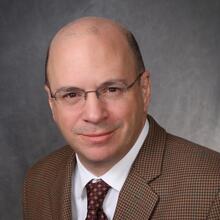Nearly 40 years ago, on Nov. 29, 1982, then-Archbishop Joseph Bernardin of Chicago appeared on the cover of Time magazine with the headline “God and the Bomb: Catholic Bishops Debate Nuclear Morality.”The following May, the U.S. bishops released the result of that debate: “The Challenge of Peace: God’s Promise and Our Response,” their seminal pastoral letter on the use of nuclear weapons. The letter called for the elimination of nuclear weapons and an end to the strategy of mutually assured destruction (MAD).
In many minds, the fall of the Soviet Union and the end of the Cold War, circa 1990, meant that the prospect of nuclear war was no longer a real possibility.
Americans are again fearful about the possibility of global nuclear war. Russia has invaded the sovereign state of Ukraine, and Russian President Vladimir Putin has placed his country’s nuclear forces on “high alert.” A nuclear exchange between Russia and the United States is not inconceivable. Mr. Putin’s chilling warning to the West that any attempt to interfere in Ukraine will lead to “consequences you have never seen” underscored this point. Should Mr. Putin decide to take military action against a NATO country, there would be a clear path to the ultimate escalation.
This terrifying prospect is heightened by the fact that nuclear weapons have not been in the forefront of people’s consciences in recent decades. In many minds, the fall of the Soviet Union and the end of the Cold War, circa 1990, meant that the prospect of nuclear war was no longer a real possibility. Yes, China, North Korea and other nations went on to develop or expand capabilities, but the Russian bear had been tamed. Other existential threats to the survival of the human race, such as climate change and the global Covid-19 pandemic, took center stage.
[Related: It is time for Israel to come clean about its nuclear weapons]
But the truth is that global nuclear war remains the biggest threat to the survival of humankind. Since the U.S. bishops released “The Challenge of Peace,” the number of nuclear weapons have decreased overall, but according to the Federation of Union Scientists, the number of deployed nuclear weapons—ready for use—has once again begun to increase. At the beginning of March, the Doomsday Clock, used by a group of atomic scientists to show how close they think we are to nuclear war, was at 100 seconds to midnight, the closest in its 75-year history.
Moreover, the strategy of mutually assured destruction, which the bishops decried in 1982, remains the shaky foundation upon which human survival rests. It does not account for an unstable leader initiating a first strike, or for the development of offensive or defensive weapons (such as a “star wars” system to knock out incoming missiles) that could make a nuclear war seem “winnable.” And progress toward the reduction of nuclear stockpiles has stalled, with the Intermediate Nuclear Forces Treaty defunct and the recent arms control talks with Russia suspended by the Biden administration.
The stalled disarmament efforts, along with Mr. Putin’s recent statements, mean that the moral debate around nuclear weapons must be rekindled, even if only to again raise awareness of the threat. Nearly two generations have lived in a post-Cold War world and are generally uneducated on the issue.
Archbishop John Wester of Santa Fe recently re-engaged the topic in his pastoral letter “Living in the Light of Christ’s Peace: A Conversation Toward Nuclear Disarmament,”in which he called for nuclear disarmament. The letter carries special significance coming from the archbishop in New Mexico, where nuclear weapons have been developed in the town of Los Alamos.
The bishops should also question the morality of the economics of nuclear weapon production, as Archbishop Wester does in his recent pastoral letter.
As the 40th anniversary of “The Challenge of Peace” approaches in 2023, the U.S. bishops should follow Archbishop Wester’s lead and revisit the issue in full. Perhaps it is too late to put the nuclear genie back in the bottle, but our elected officials should at least reduce the number of nuclear weapons, not authorize bigger and better ones.
The bishops should also question the morality of the economics of nuclear weapon production, as Archbishop Wester does in his letter. Should we make money off the creation of weapons that could wipe out human existence? Should we spend billions on their production, when there are so many other human needs in our country? The military industrial complex that President Dwight Eisenhower warned about is now on steroids in the form of the nuclear weapon industry.
The Russian invasion of Ukraine has taught us that the world is still a very dangerous place. Once the shooting starts, where could it end? This is a question that must be placed back on the front page. In a nuclear exchange, a Chicken Little would not have time to warn us that the sky is falling.
The Cold War is long over, but new generations still face the prospect of nuclear war, which remains the most immediate and greatest threat to human existence. It is a teaching moment that the U.S. bishops should seize.








